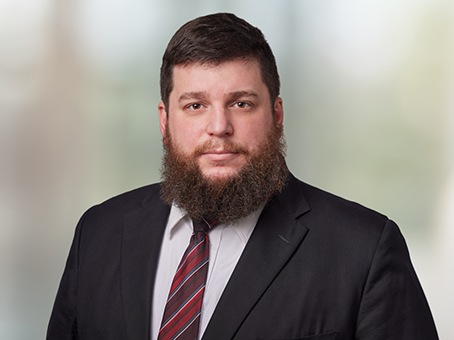By Steven F. Cade and Paxton L. Deuel
In a significant decision last December, the Oregon Supreme Court concluded that an employee’s use of their work e-mail account to communicate with their attorney qualifies as “confidential communication” and, therefore, warrants protection under the attorney-client privilege. The mere fact that the e-mail was subject to surveillance because it was stored on an employer’s server does not destroy that confidentiality. This remains true even if the employee leaves that job without deleting their emails, allowing them to linger on the ex-employer’s server. The Court suggested that confidentiality could potentially be destroyed with some additional evidence, but did not specify what it would accept. This article summarizes the Court’s decision in Gollersrud v. LPMC, LLC, 371 Or 739 (2023) and suggests what additional evidence might be required to destroy attorney-client privilege.
Facts
In Gollersrud, Plaintiff David Gollersrud and his mother, Inez Gollerrud, sued defendant LPMC, LLC over alleged real estate investment fraud. David was using his work email account to communicate with his attorney regarding the lawsuit. David ended up leaving his employment without deleting the emails between him and his attorney, so the emails were left stored on the employer’s email server. During discovery, LPMC subpoenaed David’s prior employer, seeking copies of these emails. David moved to quash the subpoena, arguing that the emails with his attorney were protected by attorney-client privilege. But the trial court disagreed and ordered production. David and his mother subsequently petitioned the Oregon Supreme Court for a writ of mandamus to review the trial court’s decision.
Confidentiality
On review, the first question before the Oregon Supreme Court was whether the emails between David and his attorney were confidential. For purposes of attorney-client privilege, a confidential communication is a communication in furtherance of legal advice that is not intended to be disclosed to a third party. Under the law, a presumption of confidentiality arises if the communication is between a client and an attorney.
LPMC tried to overcome the presumption by pointing to the fact that David’s employer, like many employers, had access to David’s work email account. So, LPMC argued, it followed that David knew or should have known that the emails he sent and received on his work email address were not confidential.
The court, however, disagreed. Instead, it held that “the mere awareness of a risk of disclosure” does not defeat confidentiality. To rule otherwise would mean most email communications (e.g., Gmail, Yahoo!, Mail, etc.) would be deemed non-confidential because their terms of service require the user to consent to the disclosure of the email content. Thus, the Court stated that the mere fact that David’s employer had access to his email account did not automatically result in the loss of confidentiality.
In reaching this conclusion, the court noted that in a modern work environment, it is not unreasonable for employees to use their work email account for personal and confidential correspondence. “For many,” the court said, “a clear divide between work and nonwork does not exist.” The court even cited a report from the U.S. Bureau of Labor Statistics showing that 34 percent of employees worked remotely in 2022. In this way, the Court tried to reconcile the individual experience of surveillance in the modern world with traditional legal concepts that presume a greater background level of privacy.
Waiver
Having concluded that the emails between David and his attorney were confidential, the next question before the Court was whether David’s act of leaving his employment without deleting personal emails waived attorney-client privilege. A party can waive attorney-client privilege upon a showing that the client expressly or impliedly disclosed the confidential communications to a third party. LPMC argued that David’s act of leaving his employment constituted express or implied disclosure of the confidential emails, because a reasonable person in David’s shoes would have deleted the confidential emails before leaving a place of employment.
But, again, the Court disagreed with LPMC. According to the Court, there was in fact no disclosure of confidential communications at all. The record did not include any evidence that David’s employers used their surveillance capability to actually read, review, or learn the contents of David’s emails. Apart from leaving his employment, David did not take any other affirmative actions to indicate that he intended to voluntarily disclose the confidential emails. Therefore, according to the court, David did not waive attorney client privilege, because he never voluntarily disclosed the confidential emails.
Takeaway
So, is there privacy at work? Probably not. But apparently in some cases the mere possibility of computer surveillance is insufficient to defeat an expectation of privacy. In future cases, a party seeking discovery of personal emails on a work computer will have to prove something more than mere use of the employer’s system. This could include actual access of the account by the employer or evidence that a clear policy existed and was clearly communicated to employees. The latter would probably need to be more than mere boilerplate in a company employee handbook. The outcome might also be different if the employee, on exiting, signs one or more documents acknowledging the abandonment of rights in emails on the employer’s server.
While this is an interesting case on the attorney-client privilege, the Court’s comments on privacy expectations in a context of pervasive computer-based surveillance may be more interesting in the long run.
To conclude, Gollersrud v. LPMC, LLC further refines how Oregon courts treat attorney-client privilege. It also signals the Oregon Supreme Court’s willingness to update longstanding, traditional legal doctrines, like attorney-client privilege, to accommodate for the recent changes in how Oregonians live and work.
This article is intended for information purposes only. It is not intended as legal advice and does not establish an attorney-client relationship between the reader and the firm. The legal issues presented in this article are subject to change. New or additional information may be available since the publication of this article. Before taking any action relating to the subject matter of this article, readers should consult with an Oregon licensed attorney.
About the Authors
Steven F. Cade is a partner and trial lawyer in the litigation department at Sussman Shank LLP. With a diverse practice, he navigates the complexities of working with creditors and debtors, handling cases ranging from agriculture, to construction litigation and products liability.
Paxton L. Deuel is an attorney in the business and litigation departments at Sussman Shank LLP. His practice consists of a wide range of matters including business transactions, business disputes, employment matters, and litigation.



